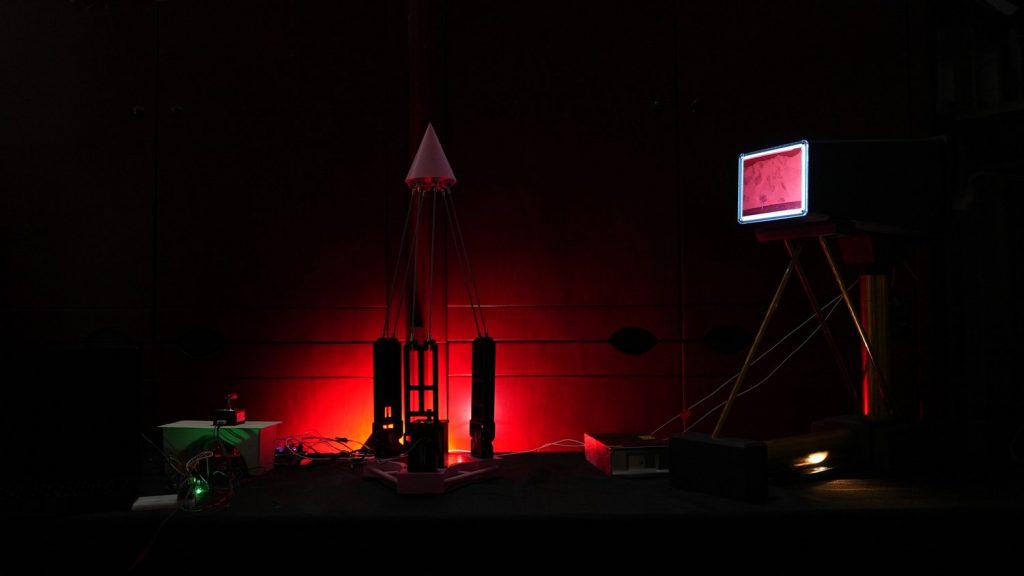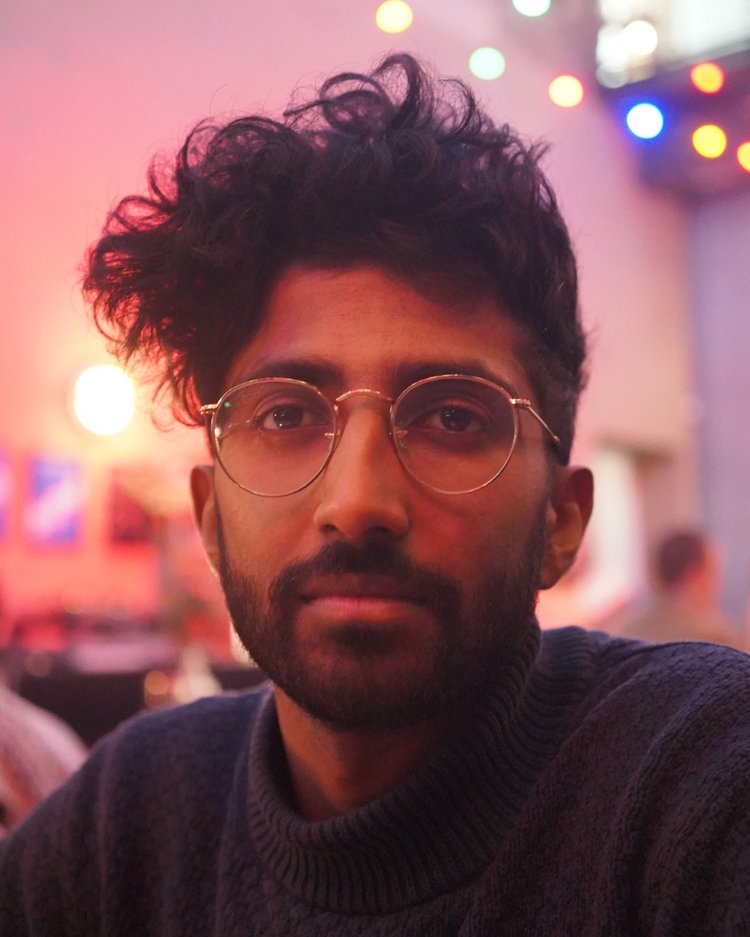
Exhibition details
Saturday, 18th to Sunday, 19th of Nov 2023
Open to view at Inspace Gallery from 10am to 5pm daily
1 Crichton Street, Edinburgh, EH8 9AB
About the Exhibition
Ximulacra; a robot which scans analogue film photo negatives of mountain scenes and re-interprets them as dance!
The photos capture how mountain forms and their surroundings life shift from the Karakoram range in Pakistan to the Helan Mountains in China. As the analogue photos are abstracted into digital movement, this perception and embodiment driven piece seeks to explore the interaction between artificial and natural entities to generate novel digital-analogue hybrid scenes. Ximulacra experiments with how humans perceive visual data and how human-machine interaction can contribute to the poetic reading of photography.
OPENING EVENT
Opening Reception and Artist Talk
Friday, 17th Nov 2023
at Inspace Gallery from 6pm to 8pm
(Doors Open 5:30pm)
1 Crichton Street, Edinburgh, EH8 9AB
Join Inspace and the Institute for Design Informatics, for Ximulacra opening reception and event featuring artist talk by lead artist Shankar Saanthakumar. Hear about the exhibited work on show and gain insights into the concept behind this digital-analogue piece which explores human-machine interaction using an image processing algorithm.
THE ARTIST

Shankar Saanthakumar
https://www.shankarsaanthakumar.com/
www.instagram.com/shankarsaanthakumar
Shankar Saanthakumar is an artist working across sculpture, paint, and computation to explore themes of perception and embodiment. He is particularly interested in how these themes relate to the feeling of mind-body (dis)connection in humans, and how exploring them in non-human systems can reveal insights into the human condition. For Ximulacra he contributed photography from the Karakoram range in Pakistan, and led the design of the robotic systems.
Shankar is also a regular performer at Wavetable, a monthly night of sonic experimentation in Edinburgh. There he fuses paintings and analogue photography with code to create digital-analogue hybrid-scene live coded visuals to compliment experimental electronic music.
COLLABORATORS
Zhu Runzi – https://zhurunzi.studio/www.instagram.com/zhu_runzi
Zhu Runzi is a photographer working from Shanghai and Paris, with a specialisation in capturing architecture and interior concepts within their contextual surroundings. The photos showcased in this exhibition were captured in the Helan Mountain, a geographical landmark significant to his hometown in Ningxia Province. This trip marked his first foray into the heart of Helan Mountain, rekindling cherished memories from 20 years of living in NingXia whilst also providing fresh insights into his self-identity. Through the photos he reconnected with the environment where he was raised, and tapped into formative unconscious memories which still influence his life today.
He obtained his Master’s degree in Architecture from the University of Manchester and his Bachelor’s from the University of Liverpool. During this time he discovered a profound passion for documenting cityscapes and street life through photography. This passion became the cornerstone of his career as an architectural photographer, leading to collaborations with numerous international publications and studios such as Domus and Foster + Partners.
Low Tech Art Lab – http://zhengda.tech/
Led by Zheng Da, the Low Tech Art Lab at Central China Normal University concentrates on the interdisciplinary relationships between art, science, and technology. In the lab, hardware engineers, creative coders, and sound artists work together to take a “low tech” approach to making games, light installations, and robotic systems. These seek to create playful human-machine interactions which question conventional relationships with technology. The members of the studio which collaborated on Ximulacra are Owen Chan, Jingyuan Lin, and Shuya Zhang. They led the development of the vision algorithm for Ximulacra and contributed to the robot design process.
Floa – https://www.floa0.bandcamp.com
Floa aka Sonam Gray is a Scottish sound artist based in Edinburgh. He has been immersed in creating electronic music throughout his life through a variety of formats and software and creates now mainly on modular synths as
Floa. He attended both the University of the Arts and the School of Audio Engineering. His work past, has included studio recording, post production, Foley, location sound, and installation sound whilst in his residencies
of London, New York and Los Angeles. He is also a founding member of the local collective ‘Wavetable’.
CREDITS
Led by Shankar Saanthakumar, in collaboration with Zhu Runzi and the Low Tech Art Lab who, respectively, helped to develop the photography and image processing algorithm elements of the project.
Supported by:
This project is supported by the British Council Connections Through Culture Programme, the Tinderbox Collective, the Institute for Design Informatics and Inspace Gallery